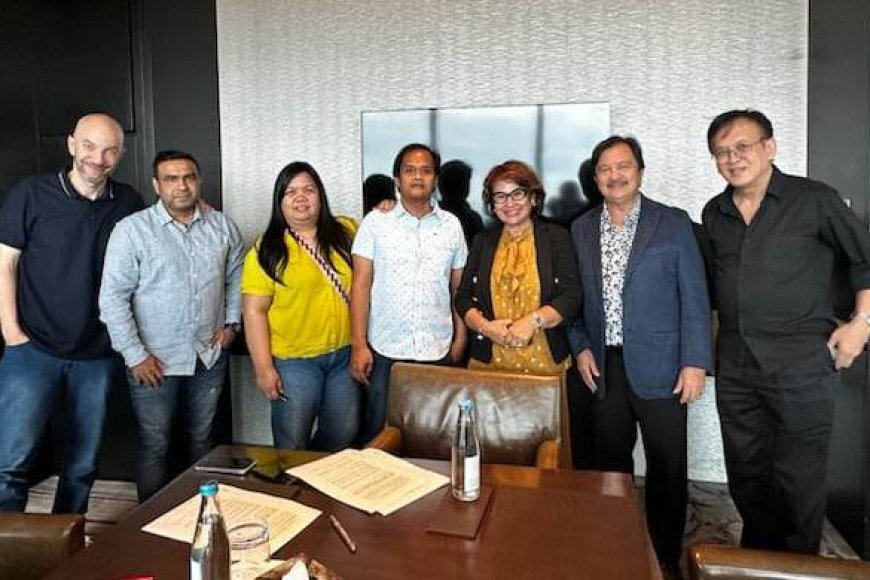Training the next generation
I remember my father asking me to check the whole family in for our flight to New York — I was only 18 years old. He gave me the passports and tickets and told me to handle them. I survived. We often think we must always take the lead even in the most basic of […]

I remember my father asking me to check the whole family in for our flight to New York — I was only 18 years old. He gave me the passports and tickets and told me to handle them. I survived. We often think we must always take the lead even in the most basic of tasks, but sometimes it is better to let the young ones take over and maybe make a few mistakes but learn the process anyway.
Today, children are exposed to buying flights online, talking to a chat bot on customer service, and just accepting the new way of checking in at airport kiosks, tagging your own luggage, and not getting any meals during the flight itself. (Oh, how I miss those days when service was key and probably cost half the price of an airline ticket. With slashed travel prices, they have slashed the service as well. Today’s consumer is unfazed by the quality of service rendered by providers because they did not experience luxe of yesteryears. How sad!)
More than just training them on travel procedures, we must train the young in critical thinking and thinking on your feet. So, we must throw them into situations that require fast thinking, and that needs a lot of judgment calls. This is not all learned in school, but in the school of life. You need to be sharpened by various hard situations and be responsible for your decisions. Not all decisions will be good, and that is a possibility one must accept. Good or bad, you made a decision.
This is why we need to train our next generation by letting them go. Let them decide, let them fall if they must — and then help them as they pick themselves up. Just like bicycles that have training wheels. We like to be in control, let’s face it. But sometimes that breeds indecisive children and scared junior staff who cannot decide because it might cost money or time and sometimes, both.
It must be a conscious effort for managers and CEOs to look for their successors. While corporate books insist on that, family corporations do not subscribe to such a move — so, the patriarch or matriarch rules until he or she croaks. For the sustainability of the business, or even an advocacy, we must learn to let go and the next in line must be willing to take over, slowly but surely.
I was just watching a feature on the Adani family of India where all the sons and nephews were asked to take on roles for every management process (Sales, Marketing, COO, etc.) and concurrently also take charge of a sector (airports, ports, etc.). No wonder they are still India’s richest family, with a fourth of India’s GDP in their hands. They also look at government priorities and dance their business to the current tunes of the administration. But clearly, they have thought of succession.
In advocacies or NGOs, we must also share our vision and just cause with our colleagues so that it does not remain stuck with the founder/s. We must encourage the younger members to rise up and be our leaders while we can still guide them to avoid mission drift or to avoid repeating past mistakes. Let us not think that we are the only ones who can do a special task of seeing a project through. Sometimes, it is good to say “let the chips fall where they may” and just leave it to the juniors in training.
Have you found your successor yet? Sometimes, we are the biggest hurdle — we refuse to let go and no candidate will be good enough for us. We are also a hurdle if we want to be in total control of the results all the time.
The way I think about it is this: you could just croak one day and life will go on. What steps can we take to better lose control with consent? Here are some suggestions:
1. Take them along to your meetings. Let them experience how you make decisions, given facts and conditions as discussed at the meetings.
2. Introduce them to your principals and associates. Give them their own name and title to empower them in dealing with others.
3. Let them decide on the minor stuff first, then the big decisions later. They can surely handle it their way even if it seems longer and less practical.
4. Find out what makes them happy. Talk to them about the future they want to see and what will make them happy. It may not be the same motivation as yours.
As we approach our golden years, we must make a conscious effort to train the next generation and let them lead or manage with their own style — but mindful of our corporate and family values. So, I cannot over-emphasize that value formation is key and that culture must be felt for it to be maintained and preserved. Corporate and family culture is the key to sustainability of any endeavor, business, or even in an advocacy or non-profit.
Be mindful that they start small and humble. In the case of family corporations, let them first learn at someone else’s company, not yours. Let them be humbled by working for others first, before becoming the Child Of Owner or COO. They should work elsewhere to also take back some lessons we cannot give them but that they can apply in our company.
In NGOs, let them think of their own pet project you will support. That will give them the confidence to see things through because they “own” the cause or project. Passing down a cause may not work well and may not stick well with the young.
Look for your successor and pass on the values, not the bad habits. Pass on the culture, not your personality.
(This article reflects the personal opinion of the author and does not reflect the official stand of the Management Association of the Philippines or MAP. )
Chit U. Juan is co-vice-chair of the Management Association of the Philippines’ Environment Committee. She is also the president of the Philippine Coffee Board, Inc. and Slow Food Manila (www.slowfood.com).























